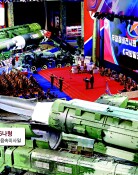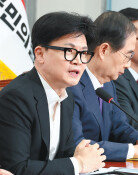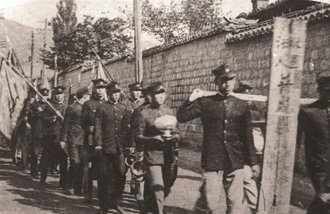Korean shipbuilders now at risk
Korean shipbuilders now at risk
Posted March. 21, 2016 07:14,
Updated March. 21, 2016 07:26
Korea’s three major shipbuilders, once the world’s top threes, lost the third position to a Japanese shipbuilder. According to Clarkson, a U.K.-based research center, Hyundai Heavy Industries and Daewoo Shipbuilding & Marine Engineering won the first and second place, respectively, with Samsung Heavy Industries yielded its third position to Japan’s Imabari Shipbuilding, as of the end of February. Japan won the world’s top position in terms of the monthly amount of orders in six years and eight months in January 2015. While Korean shipbuilders were sinking, Japan succeeded to turn around.
The revival of Japanese shipbuilders, which accounted for less than 10 percent of the global market, was partly on the back of the weak yen but, more importantly, thanks to their continued restructuring and technological development. In 2014, IHI Marine United and Universal Shipbuilding merged into Japan Marine United (JMC), No.4 in the world, and Imabari Shipbuilding and Mitsubishi Heavy Industries carved out the LNG shipbuilding business to create a shipbuilding yard for LNG vessels. Imabari Shipbuilding with the largest dockyard in Japan has resumed the expansion of the dock in 18 years. It focused on technological development by jointly working with a small company that is the best in making propellers for ships, and aimed at creating a diverse portfolio of its ships to cover all types of merchant ships. In addition, the Japanese shipbuilder developed environmentally-friendly ships given the tightening regulatory environment around releasing contaminants in the ocean. Moreover, the Japanese government supported the merged companies by offering one percent interest rate for 80 percent of the value of a ship.
Korean shipbuilders, which once celebrated winning their Japanese counterparts, are now in troughs. Last year, Daewoo had a record operating loss of 5 trillion won (4.1 billion U.S. dollars), the largest ever among Korean companies in history. Its net loss of 5.14 trillion won (4.23 billion dollars) is the second largest following that of Kia Motors during the 1998 financial crisis. Despite the injection of 4 trillion won (3.29 billion dollars) in taxpayers’ money, nobody is responsible for the largest-ever loss. In addition, the upcoming general elections are postponing restructuring indefinitely.
The Korean shipbuilding industry is forecast to have, practically, zero new orders in the first quarter of this year. Five or six years ago, the three Korean shipbuilders accounted for 70 percent of the global market, which is now down to 30 percent (as opposed to China’s 40 percent and Japan’s 30 percent). The research showed that three Chinese shipbuilders are included in the world’s top 10 list, which heralds competition from Chinese counterparts. Shipbuilding is one of Korea’s major industries with automobiles and semiconductors. In addition to heavy exports, it generates much more jobs – 10 people per one billion won (820,000 dollars), much more than the automobile (8.8 people) and semiconductor (3.8 people) industry. To overcome the worst-ever challenges and seek revival, it should learn lessons from Japan, which successfully improved its competitiveness despite the strong yen.
허문명논설위원 angelhuh@donga.com
Headline News
- Korean business leaders urge a halt to commercial law amendment
- Yoon begins extensive verification for cabinet and staff reshuffle
- Police confirm Pyongyang’s involvement in Ether heist in 2019
- Ukraine fires British Storm Shadows at targets on Russian territory
- Ulsan and Pohang compete to crown Korea’s soccer champions







